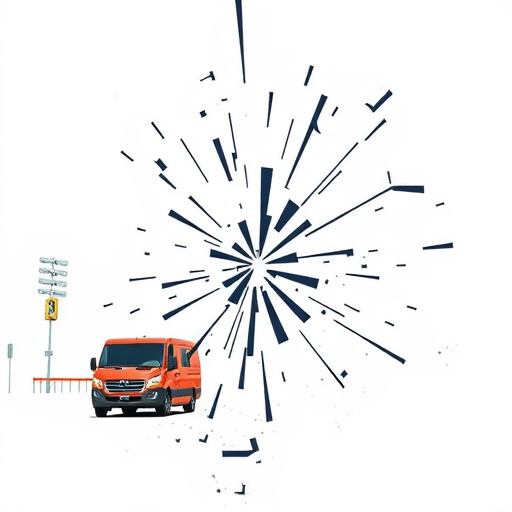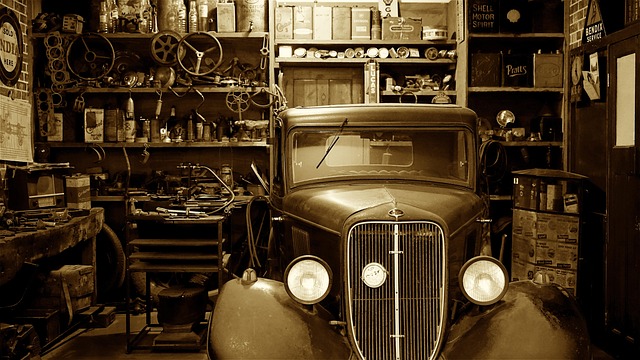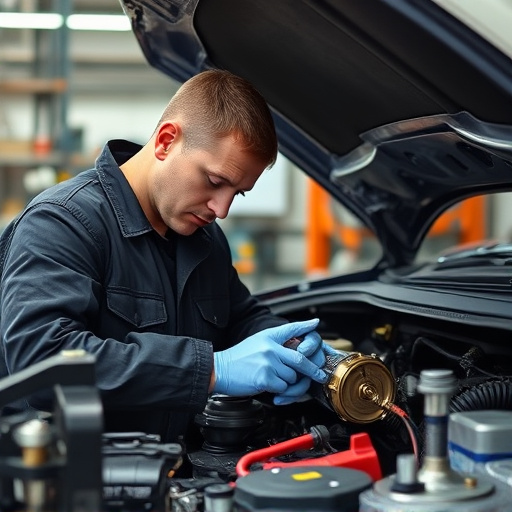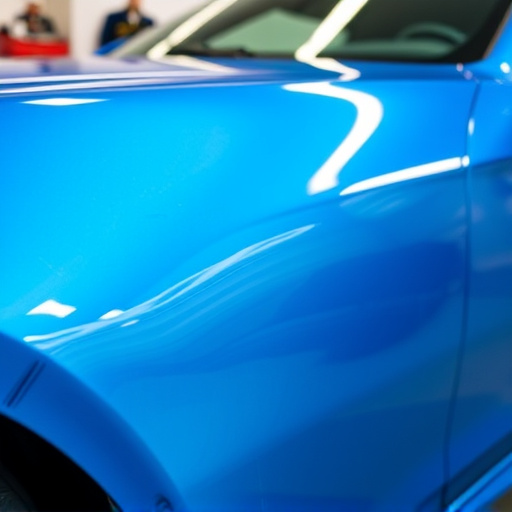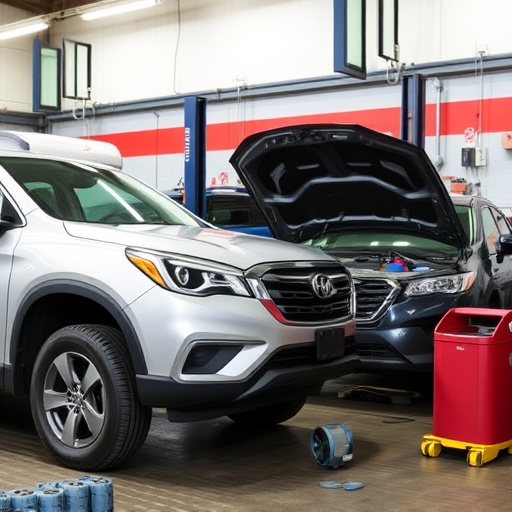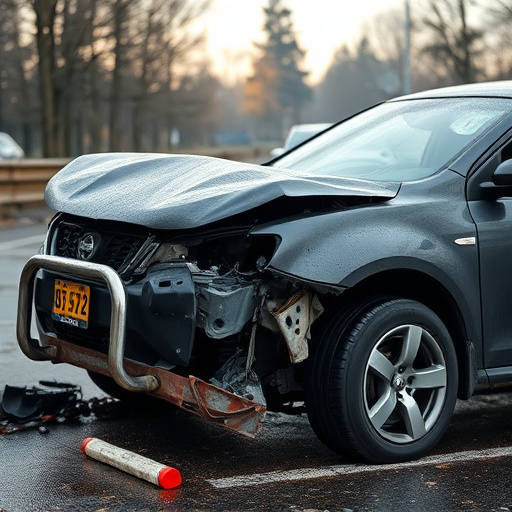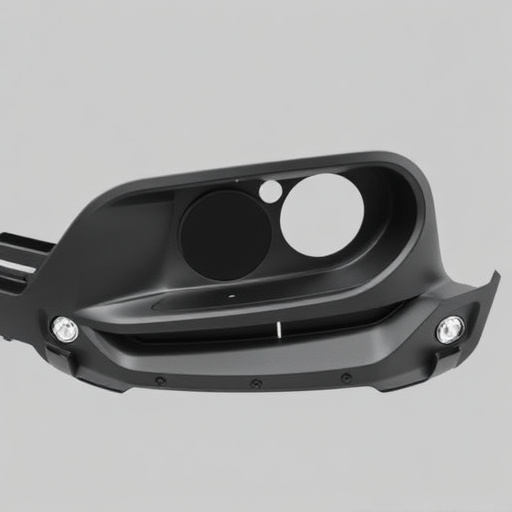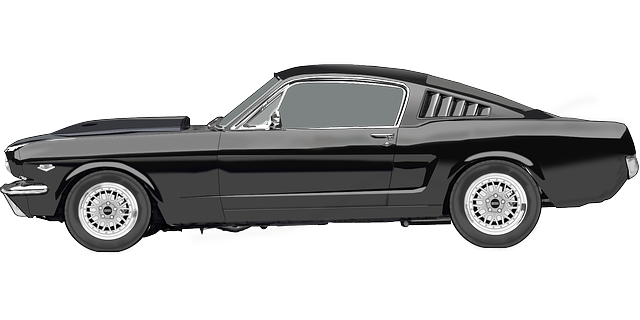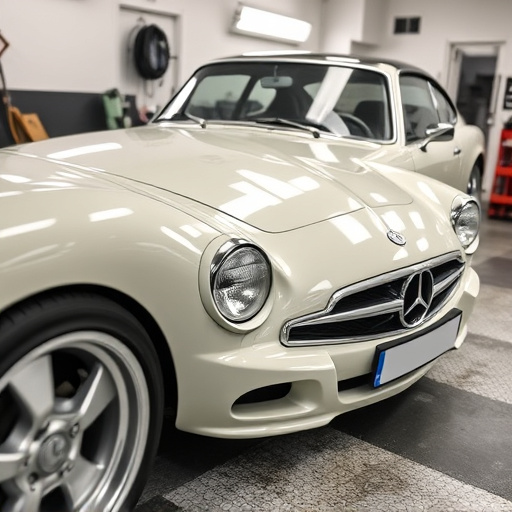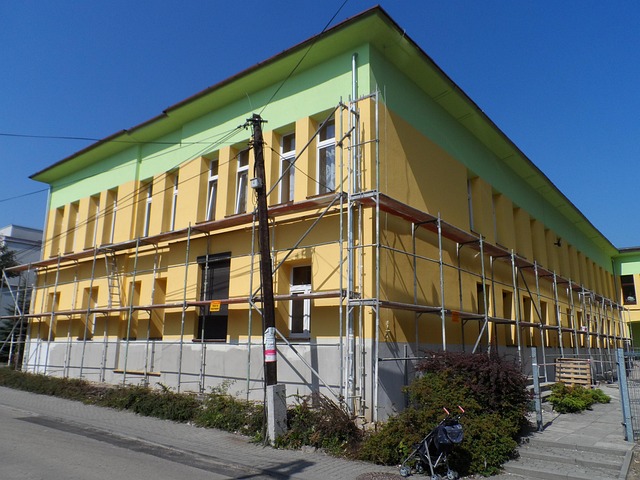Mercedes-Benz is an automotive safety leader, adhering to Euro NCAP standards through advanced manufacturing processes, particularly precise Mercedes factory welding methods. Utilizing laser and robot-assisted resistance spot welding, they surpass traditional arc welding techniques for unparalleled precision, efficiency, and structural integrity. This commitment to quality and consistency ensures every vehicle meets and exceeds global safety regulations, solidifying Mercedes' reputation in both restoration and repair while prioritizing occupant safety.
Mercedes-Benz, renowned for its luxury and innovation, places paramount importance on safety, adhering to Euro NCAP and global standards. This commitment is evident in their advanced factory welding methods. The article delves into understanding these techniques, exploring the specific standards and processes that ensure quality and consistency across Mercedes models. From robotic welding to laser-beam joining, these cutting-edge practices contribute to the structural integrity and overall safety of each vehicle produced.
- Understanding Mercedes' Commitment to Safety: The Euro NCAP and Global Standards
- Advanced Welding Techniques: Methods Employed by Mercedes Factories
- Ensuring Quality and Consistency: Process Controls and Standardization at Mercedes
Understanding Mercedes' Commitment to Safety: The Euro NCAP and Global Standards

Mercedes has long been recognized for its commitment to automotive safety, setting industry benchmarks and consistently achieving top ratings in crash test programs worldwide. The brand’s adherence to stringent Euro NCAP (European New Car Assessment Program) standards is a cornerstone of this philosophy. These rigorous tests assess a vehicle’s performance in various collision scenarios, focusing on passenger protection, active safety features, and overall structural integrity. By meeting and often exceeding these requirements, Mercedes ensures its vehicles provide optimal safety for drivers and passengers alike.
Beyond Euro NCAP, Mercedes also adheres to global safety standards, demonstrating a comprehensive approach to automotive security. This involves employing advanced manufacturing processes, including meticulous factory welding methods, to construct sturdy vehicle frames and bodies. Such precision in fabrication, coupled with robust design and innovative safety systems, contributes to the brand’s reputation for building vehicles that offer superior protection in the event of an accident. Mercedes’ commitment to these standards not only meets but often exceeds customer expectations, making it a leader in both mercedes benz repair and vehicle restoration, ensuring every vehicle leaves the factory ready to face the road with unparalleled safety.
Advanced Welding Techniques: Methods Employed by Mercedes Factories
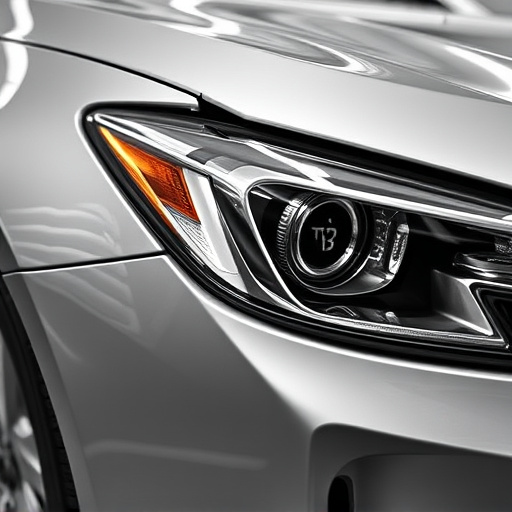
Mercedes factories employ advanced welding techniques to ensure that every vehicle produced meets the highest safety standards set by Euro NCAP and global safety regulations. These methods go beyond traditional arc welding, incorporating state-of-the-art technologies like laser welding and robot-assisted resistance spot welding. Laser welding, for instance, offers unparalleled precision and efficiency, creating strong, seamless joints while minimizing heat input, which helps preserve the structural integrity of the components.
Robot-assisted resistance spot welding combines the accuracy of robotics with precise control over heat input, allowing for consistent and reliable welds. This method is particularly effective in complex assembly processes where fine adjustments are crucial. Moreover, Mercedes also leverages advanced tire services and car collision repair technologies to optimize the entire manufacturing process, ensuring that every vehicle not only meets but exceeds safety expectations across all auto repair services.
Ensuring Quality and Consistency: Process Controls and Standardization at Mercedes
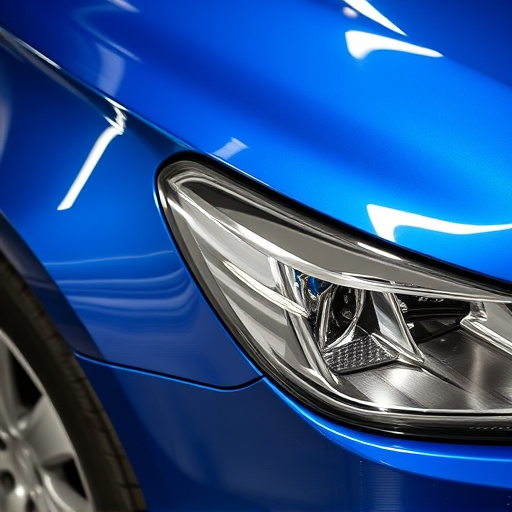
Mercedes places paramount importance on quality and consistency in its factory welding methods, adhering to stringent Euro NCAP and global safety standards. The automaker employs sophisticated process controls and standardization protocols across all its manufacturing facilities. This ensures that every weld meets the exacting specifications required for each model, regardless of which plant it’s produced in. By implementing these rigorous standards, Mercedes guarantees not only the structural integrity of its vehicles but also their overall performance and safety.
Moreover, continuous training and quality assurance programs are integral to maintaining these high standards. Skilled technicians undergo regular updates on the latest welding techniques and technologies, ensuring they remain at the forefront of the industry. This commitment to excellence extends beyond assembly lines; even in ancillary services like tire services and vehicle repair, Mercedes maintains the same level of rigor, integrating safety-focused practices into every aspect of its operations.
Mercedes’ commitment to safety is evident through its adherence to Euro NCAP and global standards, which is reflected in their advanced factory welding methods. By employing sophisticated techniques and stringent quality controls, Mercedes ensures that every vehicle built meets the highest safety criteria. These meticulous processes contribute to the overall robustness and reliability of Mercedes cars, making them a leader in automotive safety. Understanding these factory welding methods provides insight into why Mercedes remains a trusted name in the industry.
